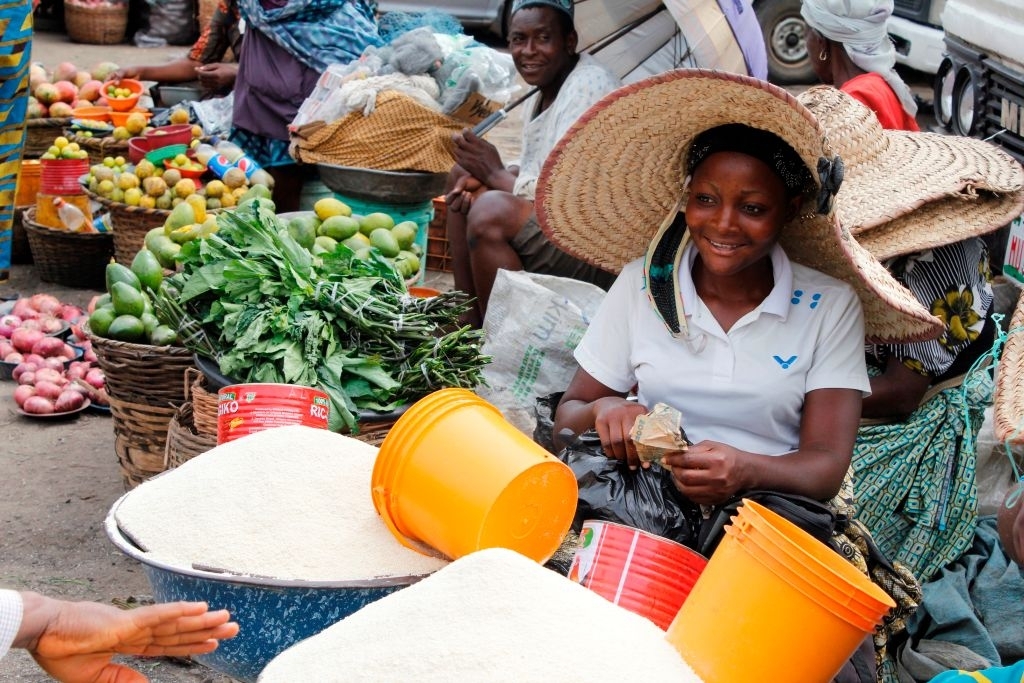Nigeria’s inflation rate declined to 24.48 per cent in January 2025, following the rebasing of the Consumer Price Index (CPI) by the National Bureau of Statistics (NBS).
This represents a significant drop from the 34.80 per cent recorded in December 2024, before the adjustment, and marks a major shift in how inflation is measured in Africa’s largest economy.
The rebasing exercise—highly anticipated by economists, investors, and policymakers—has introduced a more comprehensive methodology, expanded product categories, and adopted a more recent base year to improve accuracy in tracking price movements.
Food inflation fell to 26.08 per cent in January 2025, down from 39.84 per cent in December 2024 before the adjustment. Core inflation—which excludes volatile food and energy prices—rose by 22.59 per cent year-on-year, compared to 29.28 per cent in the previous month.
Urban inflation stood at 26.09 per cent, lower than the 37.29 per cent recorded in December 2024 under the old methodology. Rural inflation was 22.15 per cent, a notable decrease from 32.47 per cent under the old methodology.
READ ALSO: Soaring food prices force families, businesses to adapt amid inflation
Dr. Bismarck Rewane, an economist and CEO of Financial Derivatives Company, explained that CPI rebasing is a standard global practice used to adjust inflation calculations to reflect evolving economic realities.
“Rebasing allows us to account for new spending habits, technological advancements, and shifts in consumption. The old methodology overstated inflation because it did not reflect changing realities,” Rewane said.
The adjusted inflation figures will likely influence the Central Bank of Nigeria’s (CBN) monetary policies and government fiscal planning.
According to Dr. Muda Yusuf, CEO of the Centre for the Promotion of Private Enterprise (CPPE), the rebasing provides a clearer picture of inflation dynamics, which could impact interest rate decisions and investor confidence.
“Lower inflation figures may give the CBN room to reconsider aggressive interest rate hikes, which have been used to tame inflation. It could also ease concerns among investors about macroeconomic stability,” Yusuf noted.
The CBN’s Monetary Policy Committee (MPC) has aggressively raised interest rates in recent months to combat inflation. With the revised lower inflation figures, analysts believe there could be a policy shift towards balancing growth and inflation control.
Despite the technical adjustments, Nigerians are still facing rising food prices, higher transportation costs, and persistent economic hardships.
Professor Uche Uwaleke, a financial economist at Nasarawa State University, warned that the rebasing does not mean inflation has truly fallen—only that it is now being measured more accurately.
“Rebasing does not mean prices have reduced; it just means we now have a more precise measure. Nigerians will still feel the impact of high food and energy costs,” Uwaleke explained.
For businesses, the revised inflation rate may improve investor sentiment, as it suggests a more stable economic outlook. However, companies still face rising operational costs, forex volatility, and supply chain disruptions.

 Comments and Issues7 days ago
Comments and Issues7 days ago
 Education1 week ago
Education1 week ago
 Comments and Issues1 week ago
Comments and Issues1 week ago
 Energy1 week ago
Energy1 week ago
 Comments and Issues6 days ago
Comments and Issues6 days ago
 Comments and Issues6 days ago
Comments and Issues6 days ago
 Football1 week ago
Football1 week ago
 Health5 days ago
Health5 days ago

